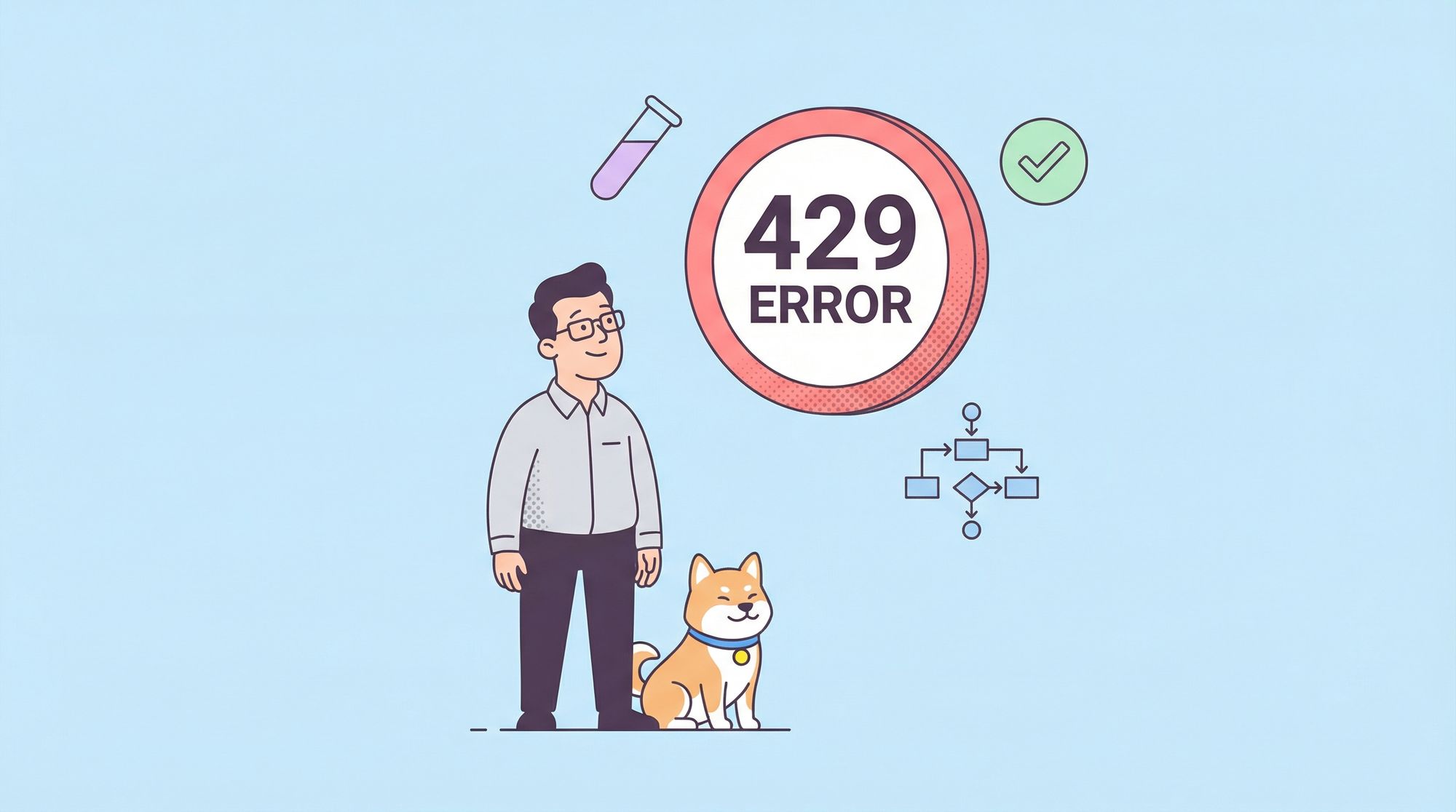In today's digital landscape, APIs (Application Programming Interfaces) have become the backbone of modern software development. They enable different applications to communicate with each other, providing a seamless integration that enhances functionality and user experience. As the demand for APIs continues to grow, API marketplaces have emerged as essential platforms for developers and businesses. These marketplaces offer a centralized location to discover, connect, and monetize APIs, simplifying the process for both providers and consumers.
Introduction to API Marketplaces
An API marketplace is a platform where developers can find and connect to APIs, and where API providers can list and monetize their APIs. These marketplaces serve as a bridge between the creators and consumers of APIs, offering tools, documentation, pricing information, and usage metrics. The primary goal of an API marketplace is to streamline the discovery and integration process, making it easier for developers to find the right APIs for their projects and for providers to reach a wider audience.
Benefits of API Marketplaces
API marketplaces offer numerous benefits to both developers and API providers:
For Developers:
- Simplified Discovery: API marketplaces provide a curated list of APIs, making it easier to find the right API for your needs.
- Transparent Pricing: Detailed pricing models help developers understand the cost implications of using different APIs.
- Enhanced Security: Reputable marketplaces enforce strict security standards, ensuring that the APIs listed are safe and reliable.
- Comprehensive Documentation: Access to detailed documentation and support helps developers integrate APIs more efficiently.
- Community and Support: Many marketplaces offer community forums and support channels where developers can seek help and share experiences.
For API Providers:
- Increased Visibility: Listing APIs on a marketplace exposes them to a larger audience, increasing the chances of adoption.
- Monetization Opportunities: Marketplaces provide tools for API providers to monetize their APIs through various pricing models.
- Usage Analytics: Providers can access detailed usage statistics to understand how their APIs are being used and to optimize performance.
- Security and Compliance: Marketplaces often handle security and compliance aspects, allowing providers to focus on improving their APIs.
- Marketing and Promotion: Many marketplaces offer marketing and promotional support to help providers reach potential customers.
Top 15 API Marketplaces to Explore
1. Apidog's API Hub
Apidog's API Hub is a comprehensive API marketplace that offers a wide range of APIs across various categories. It provides an intuitive interface for discovering, testing, and connecting to APIs.

Features:
- User-friendly interface
- Robust documentation
- Tools for seamless integration
- Transparent pricing models
- Community support
How to Test APIs at Apidog's API Hub: When you find the appropriate API that you want to integrate into your project. Simply open the online document and find the suitable endpoint. Clicking on "Try it out" will display the API test panel where you can enter any parameters or credentials (if needed).

When done, click on Send to send the request and get the test response result.

How to Get Listed at Apidog's API Hub: When you finish designing API at Apidog, you can publish the API documentation. On the Publish panel, you can select to publish the documentation to Apidog's API Hub or not.
Pro tip: You can also customize the custom domain for your API document.

Why Choose Apidog's API Hub: Ideal for developers looking for a diverse selection of APIs with strong support and integration tools.
2. RapidAPI
RapidAPI is one of the largest API marketplaces, offering a vast collection of APIs across various categories.
Features:
- Intuitive interface
- Comprehensive documentation
- Subscription-based pricing
- Robust testing tools
Why Choose RapidAPI: Perfect for developers seeking a wide variety of APIs with extensive tools for integration and testing.
3. Postman API Network
Postman is known for its API development tools, and its API network enhances productivity by integrating API exploration and testing.
Features:
- API exploration
- Testing and collaboration tools
- Seamless integration with Postman environment
Why Choose Postman API Network: Ideal for developers already using Postman for API development, providing an integrated experience.
4. Google Cloud Marketplace
Overview: Google Cloud Marketplace offers APIs from Google and third-party providers, focusing on scalability and reliability.
Features:
- Scalability and reliability
- Integration with Google Cloud services
- Secure APIs
Why Choose Google Cloud Marketplace: Best for businesses leveraging Google Cloud infrastructure.
5. Amazon API Gateway
Part of the AWS ecosystem, Amazon API Gateway focuses on API management and scalability.
Features:
- API creation and management
- Monitoring and security tools
- Seamless integration with AWS services
Why Choose Amazon API Gateway: Suitable for scalable API solutions within AWS.
6. Azure Marketplace
Azure Marketplace by Microsoft offers a variety of APIs integrated with Azure services, catering to enterprise-level needs.
Features:
- Secure and scalable APIs
- Integration with Azure services
- Enterprise-level support
Why Choose Azure Marketplace: Excellent for enterprises using Microsoft Azure.
7. ProgrammableWeb
ProgrammableWeb is a comprehensive directory of APIs, offering news, reviews, and trends in the API space.
Features:
- Detailed API information
- User reviews
- Industry news and trends
Why Choose ProgrammableWeb: Great for staying updated on API trends and finding detailed information.
8. Mashape (Kong)
Mashape, rebranded as Kong, focuses on microservices and API management.
Features:
- Traffic control
- Security and analytics
- API gateway solutions
Why Choose Kong: Best for managing API traffic and ensuring security.
9. APILayer
APILayer specializes in providing high-quality APIs for data enrichment, financial services, and more.
Features:
- Reliable and easy-to-use APIs
- Specialized use cases
- High-quality documentation
Why Choose APILayer: Ideal for specific, specialized API needs.
10. IBM API Connect
IBM API Connect is a comprehensive API management solution offering a marketplace for APIs.
Features:
- API creation and management
- Security and compliance tools
- Usage analytics
Why Choose IBM API Connect: Suitable for enterprises needing robust API management.
11. Oracle API Marketplace
Oracle API Marketplace offers APIs integrated with Oracle’s enterprise software solutions.
Features:
- Business and data analytics APIs
- Integration with Oracle services
- Enterprise-level support
Why Choose Oracle API Marketplace: Perfect for businesses using Oracle’s suite of tools.
12. Apigee API Exchange
Apigee, a Google Cloud product, provides an API exchange with comprehensive management tools.
Features:
- Analytics and security
- Monetization features
- Integration with Google Cloud
Why Choose Apigee API Exchange: Great for comprehensive API management.
13. Nexmo (Vonage)
Nexmo, rebranded as Vonage API, offers a marketplace for communication APIs.
Features:
- Voice, SMS, and messaging APIs
- Reliable communication solutions
- Scalable infrastructure
Why Choose Vonage: Best for integrating communication APIs.
14. Twilio Marketplace
Twilio is known for its communication APIs, offering a marketplace with a focus on messaging, voice, and video services.
Features:
- Comprehensive communication APIs
- Authentication services
- Developer-friendly tools
Why Choose Twilio: Perfect for communication-heavy applications.
15. Rakuten RapidAPI
Rakuten RapidAPI provides access to thousands of APIs, with a focus on ease of discovery and integration.
Features:
- Easy API discovery
- Testing and integration tools
- Wide range of APIs
Why Choose Rakuten RapidAPI: Ideal for a wide range of API needs.
How to Choose the Right API Marketplace
Choosing the right API marketplace depends on several factors:
- Evaluate Your Needs: Consider the specific requirements of your project or business. Determine the type of APIs you need and the features that are most important to you.
- Compare Features: Look at the features offered by different marketplaces, such as documentation, support, security, and pricing models. Ensure the marketplace provides the tools and resources you need for successful integration.
- Consider Integration Tools: Check for integration tools and support that can help you connect APIs seamlessly into your existing infrastructure. Look for marketplaces that offer SDKs, code samples, and comprehensive documentation.
- Read Reviews: Look for user reviews and ratings to get insights into the experiences of other developers. Reviews can provide valuable information on the reliability and usability of the APIs listed on the marketplace.
- Assess Pricing Models: Compare the pricing models of different marketplaces to ensure they fit your budget. Consider whether the marketplace offers subscription-based pricing, pay-as-you-go models, or other pricing options that suit your financial planning.
Tips for Finding APIs on Marketplaces
- Use Filters and Categories: Utilize the search filters and categories provided by the marketplace to narrow down your options. This can help you find APIs that are relevant to your specific needs more quickly.
- Read Documentation: Thoroughly read the API documentation to understand its capabilities, limitations, and integration process. Good documentation is crucial for successful implementation.
- Check for Support and Community: Look for marketplaces that offer strong support channels and active communities. This can help you get assistance when needed and learn from the experiences of other developers.
- Test APIs Before Integration: Many marketplaces offer tools to test APIs before integrating them into your application. Use these tools to ensure the API meets your requirements and performs as expected.
- Review Usage Metrics and Performance: Analyze the usage metrics and performance data provided by the marketplace to assess the reliability and efficiency of the API.
Tips for Publishing APIs on Marketplaces
- Provide Comprehensive Documentation: Ensure your API is well-documented, with clear instructions on how to use it, examples, and troubleshooting tips. Good documentation makes it easier for developers to integrate and use your API.
- Offer Competitive Pricing: Set a pricing model that attracts users while ensuring you can monetize your API effectively. Consider offering free tiers or trials to encourage adoption.
- Ensure High Availability: Make sure your API is reliable and scalable. High availability is crucial for maintaining user trust and ensuring your API is used in production environments.
- Promote Your API: Use marketing strategies to increase visibility and attract users to your API. Leverage social media, developer forums, and other channels to reach potential customers.
- Monitor and Update: Continuously monitor the performance of your API and update it to meet user needs. Regular updates and improvements can help retain users and attract new ones.
Future Trends in API Marketplaces
- Growth of AI and Machine Learning APIs: There will be an increased demand for APIs that offer advanced analytics, machine learning, and AI capabilities. These APIs will enable developers to integrate intelligent features into their applications more easily.
- Enhanced Developer Experience: Future API marketplaces will focus on improving the developer experience with better tools, documentation, and support. This includes providing more intuitive interfaces, comprehensive testing tools, and robust community support.
- Expansion into Emerging Technologies: APIs for IoT (Internet of Things), blockchain, and edge computing will become more prevalent. These technologies will open up new possibilities for developers to create innovative applications.
- Increased Focus on Security: As the use of APIs grows, there will be a greater emphasis on security. Marketplaces will implement stricter security measures to protect data and ensure compliance with regulations.
- Monetization Strategies: Innovative ways to monetize APIs will emerge, providing more opportunities for API providers to generate revenue. This includes new pricing models, partnerships, and value-added services.
Conclusion
API marketplaces play a crucial role in the API economy, offering a centralized platform for discovering, integrating, and monetizing APIs. With numerous benefits for both developers and API providers, these marketplaces simplify the process of connecting applications and enhancing functionality. By understanding the features and benefits of different marketplaces, developers and businesses can make informed decisions that drive innovation and growth. Whether you are looking to find the perfect API or publish your own, the top 15 API marketplaces provide the tools and resources needed for success. As the API landscape continues to evolve, staying informed about trends and best practices will help you leverage the full potential of APIs in your projects.



